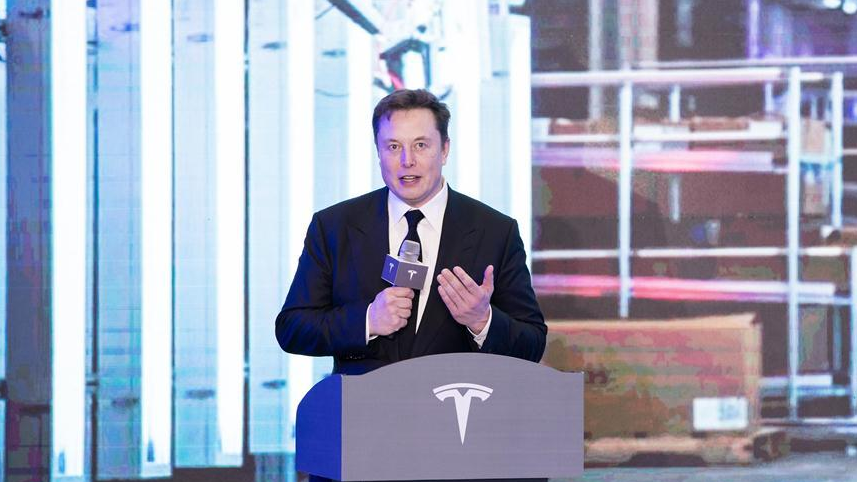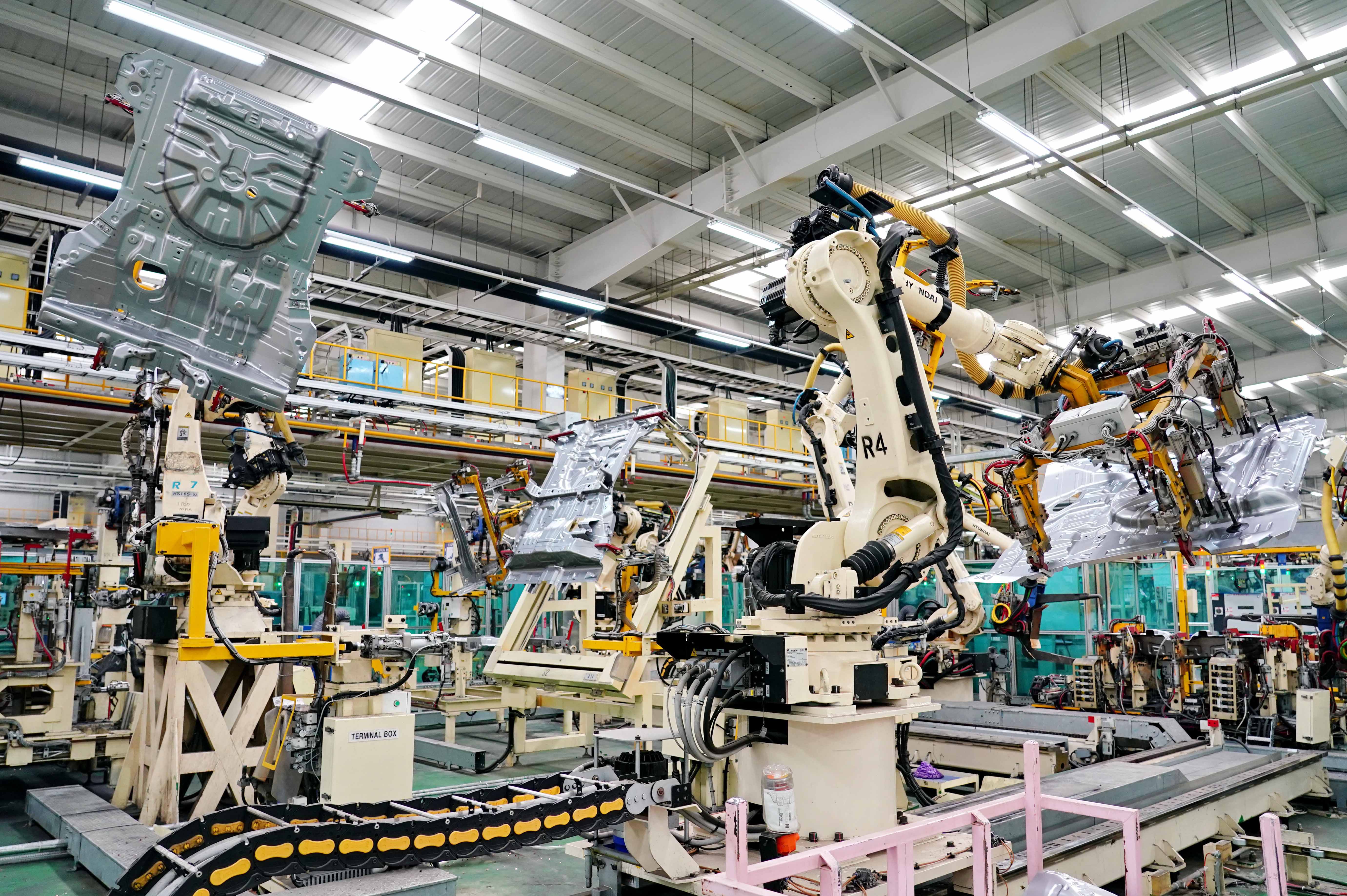
Tesla CEO Elon Musk speaks at a delivery ceremony for Tesla China-made Model 3 in Shanghai, east China, January 7, 2020. /Xinhua
Tesla CEO Elon Musk speaks at a delivery ceremony for Tesla China-made Model 3 in Shanghai, east China, January 7, 2020. /Xinhua
Editor's note: Stephen Ndegwa is a Nairobi-based communication expert, lecturer-scholar at the United States International University-Africa, author and international affairs columnist. The article reflects the author's opinions and not necessarily the views of CGTN.
"China rocks in my opinion. The energy in China is great... There's like a lot of smart, hard-working people. And they're not entitled, they're not complacent, whereas I see in the United States increasingly much more complacency and entitlement…"
The CEO of Tesla Inc. Elon Musk made these remarks on July 31 during a podcast hosted by Automotive News.
To a casual observer, Musk may simply have been stating the obvious on China's renowned productiveness. But this kind of admission from a highly respected corporate kingpin is telling, as it points to the reasons behind the dwindling fortunes not just of America's economic sector, but also of the society as a whole.
Further, it reveals the motivation behind the escalating U.S.-China trade disputes, and the subsequent panic banning of China's companies from the U.S. market.
However, as Musk put it, American companies are losing out owing to their complacent and entitled attitude.
The unprecedented rise of China as the second largest economy in the world within four odd decades is not perchance. Since 1978, China has been reforming and opening up its economy. The subsequent growth is testament of the Chinese people's work ethic, and their resolve to develop their country through innovation and sheer hard work.
There is no better proof of Chinese diligence than the fact that the country is a cog in the global supply chain. Many top brands in the developed world have factories in China where they either manufacture whole or make critical components for final assembly elsewhere.
According to the World Bank's World Development Indicators, China's industrial added value accounted for 6.8 percent of the world's total in 2003, which surged to 23.9 percent in 2017.

Robots work on a production line at a local automobile technology company in Cangzhou, north China's Hebei, July 6, 2019. /Xinhua
Robots work on a production line at a local automobile technology company in Cangzhou, north China's Hebei, July 6, 2019. /Xinhua
The mix of sectors represented in the top 10 Chinese brands shows the growth of an extremely healthy economy. These include technology, entertainment, retail, alcohol, insurance and banking. Such an all-encompassing economy cannot be maintained without extreme industriousness.
To Donald Trump, China is an economic behemoth that must be stopped by all means necessary. And the best way is to chip off the tentacles of its flagship companies, starting with technology companies like Huawei and the fast growing TikTok.
But instead of fighting a losing battle, Trump would be better off addressing the ills that are pushing the U.S. to the doldrums. No one would have put it better than the Tesla chief in his analogy of sports teams blinded by constant victories. "When you've been winning for too long, you sort of take things for granted…"
Basically, Musk was warning the U.S. against taking things for granted and ignoring competition. America has been winning for over a century, making it forget the basic virtues that helped the superpower not only get to the top, but also sustain its pole position. This is one of the major reasons why several brands relocated to China where there is great passion for work.
Indeed, just a few business concerns might be keen on pushing back as a result of Trump's Sino-envy, as can be witnessed from Tesla's aggressive entry into the vast Chinese motor market. In 2019, Tesla inked a 1.6 billion U.S. dollars financing deal with local Chinese banks to establish its vehicle manufacturing plant in Shanghai. Tesla will not only enjoy the benefits of highly skilled labor, but also a huge ready market for its products.
The Chinese economy is not only alluring to Johnnys-come-lately like Tesla. According to Shaun Rein, the managing director of the China Market Research Group, which advises U.S. companies doing business in China, "China has become the largest market to sell into for many of America's largest companies." Firms such as Starbucks, Nike and Boeing are making more money selling to the growing Chinese middle class.
News just in also reveals that Huawei was the world's largest smartphone seller in the second quarter of 2020, marking the first time in nine years a company other than Apple or Samsung has been a global market leader.
America is in a state of angst, if it has not lost it altogether. Trump has made all manner of allegations against China, citing them as reasons why the latter is overshadowing the superpower. But if the U.S. were to be brutally honest with itself, it knows that the reasons for its downfall are systemic, not external.
(If you want to contribute and have specific expertise, please contact us at opinions@cgtn.com.)